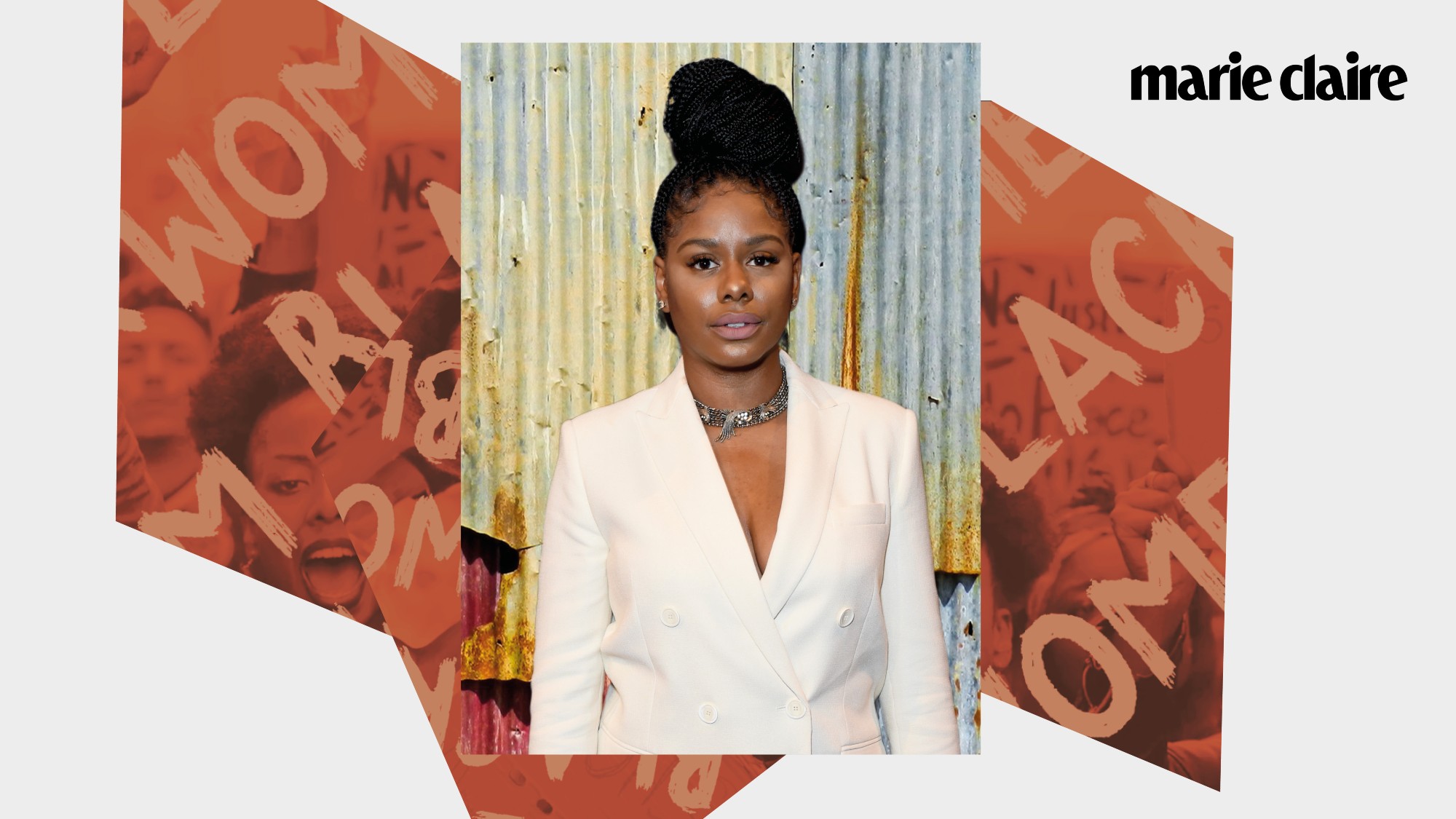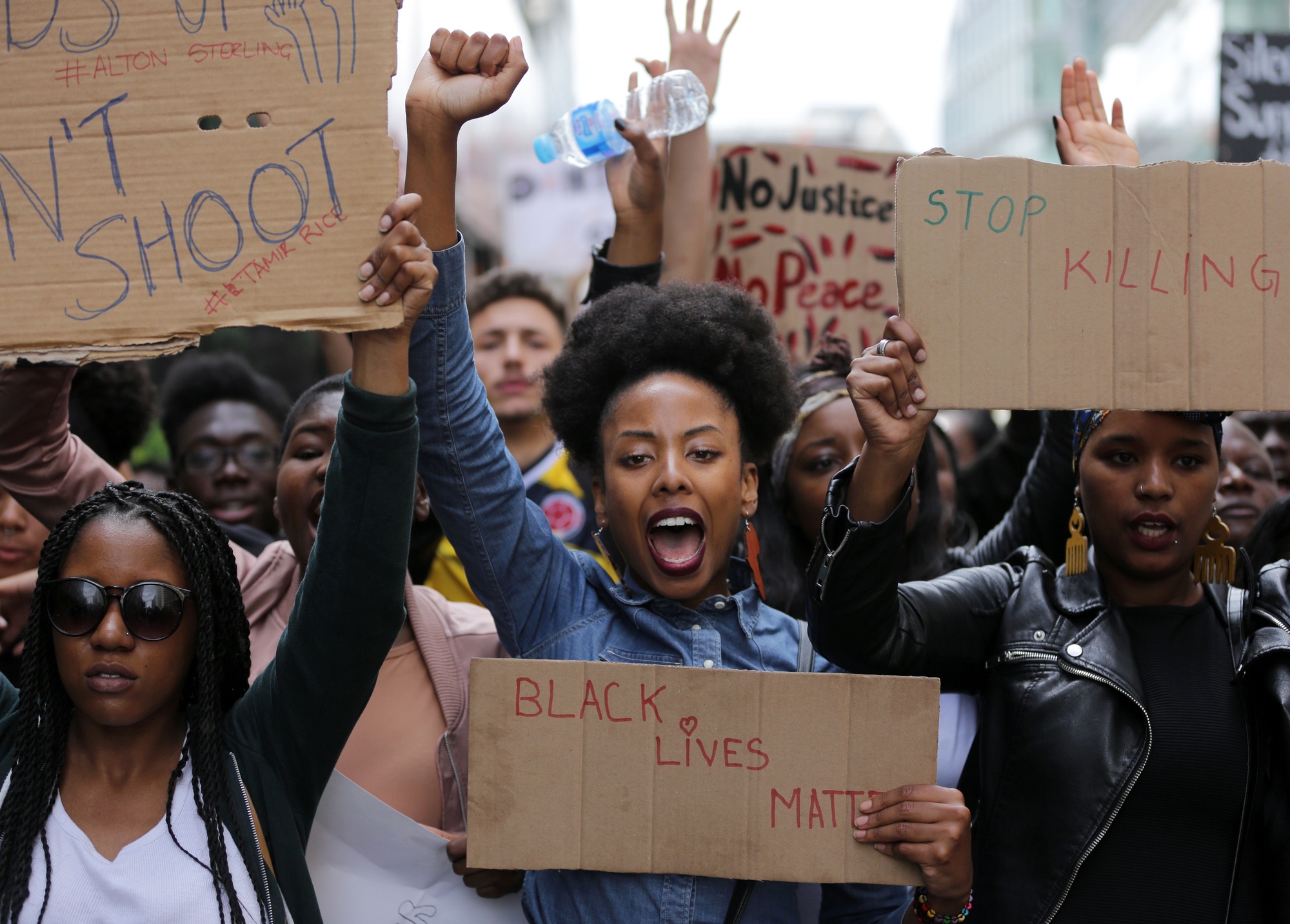"We're being suffocated by misogynoir," claims Zeze Millz
Nothing much has changed since Black Lives Matter swept the world, argues broadcaster Zeze Millz, because so many black women feel their lived experiences are ignored


Celebrity news, beauty, fashion advice, and fascinating features, delivered straight to your inbox!
You are now subscribed
Your newsletter sign-up was successful
Nothing much has changed since Black Lives Matter swept the world, argues broadcaster Zeze Millz, because so many black women feel their lived experiences are ignored
How can we fight institutional racism when the latest race report states it does not exist? How can we live our lives in the aftermath of a government-commissioned body of work which is so far from reflecting the daily experiences of thousands of Black women across the UK. Women like me who regularly feel suffocated by the misogynoir, disregard and disrespect in UK society.
The death of George Floyd last May, saw movements such as Blackout Tuesday. But a year on, and as predicted, a lot of it was performative.
I don’t feel like much has changed for Black British women. We must live with countless examples of how our lives do not matter or mean less than our peers.
In September 2020, Blessing Olusgen, 21-year-old business student, went missing and was found dead on a beach in Bexhill-on-Sea. Three months earlier, in June 2020, sisters Nicole Smallman, 27, and Bibaa Henry, 46, were found dead with multiple stab wounds in a park in Wembley, north-west London. There was barely any media coverage on these cases. In March 2021, the disappearance and suspected murder of 33-year-old Sarah Everard, received huge nationwide headlines. The disappearance and death of any woman is sad, but why do some lives seem so much more important and worthy of news than others?

Fatigue is embedded in our psyche
Imagine continuously seeing people that look like you, your friends or your family being killed, murdered by the very people entrusted to serve and protect you. Imagine the fatigue that is deeply embedded in our very psyche from being continuously gaslit for feelings that we know are real. Imagine seeing constant content that confirms, and affirms, the feelings and notion that Black women are at the bottom of the barrel.
Of course, Sarah's disappearance deserved to be given blanket press coverage, but where was that same energy for my fellow Black sisters who had been taken from us? As Black women we notice these things every day, however when the report on The Commission on Race and Ethnic Disparities was released in April 2021, implying institutionalised racism no longer exists within the UK (when we all know that is not the case) for many of us the exhaustion and tiredness we feel continues because, well, the gaslighting continues. The struggles we consistently face in our everyday life lets us know that the United Kingdom is rigged against Black people and ethnic minorities. This race report was just another example of our lived experiences being continuously overlooked and disregarded.
Celebrity news, beauty, fashion advice, and fascinating features, delivered straight to your inbox!
It's not in us to give in
A while back, I recorded one of my Headscarf Diaries (my online Instagram stream of consciousness where I get issues off my chest) on how tiresome the last 12 months have been for Black women. Black women often take the weight of injustices on our shoulders and in our hearts. We are often at the forefront of protests and change. The Black Lives Matter protests in London had many fellow Black women at the helm. And it made me think, ‘Why are we still protesting against racism? Why should we be living in fear and constantly witnessing trauma? Why aren’t we living our truly best, carefree life?' I attended those protests and remember feeling angry that I was back marching again as I had done almost five years before when Americans Philandro Castile and Alton Sterling were shot dead by US police officers. I felt as if there had been no change or justice and wondered if anything would ever really change.
So while we continue to feel the fatigue, one thing that is innate in Black women is the ability to never give up. Yes, we feel tired, but to give up is to give in. And that’s just not in us.
* Zeze Millz is a broadcaster and creator of The Zeze Millz Show, also known as The Cultural Commentator
Maria Coole is a contributing editor on Marie Claire.
Hello Marie Claire readers – you have reached your daily destination. I really hope you’re enjoying our reads and I'm very interested to know what you shared, liked and didn’t like (gah, it happens) by emailing me at: maria.coole@freelance.ti-media.com
But if you fancy finding out who you’re venting to then let me tell you I’m the one on the team that remembers the Spice Girls the first time round. I confidently predicted they’d be a one-hit wonder in the pages of Bliss magazine where I was deputy editor through the second half of the 90s. Having soundly killed any career ambitions in music journalism I’ve managed to keep myself in glow-boosting moisturisers and theatre tickets with a centuries-spanning career in journalism.
Yes, predating t’internet, when 'I’ll fax you' was grunted down a phone with a cord attached to it; when Glastonbury was still accessible by casually going under or over a flimsy fence; when gatecrashing a Foo Fighters aftershow party was easy-peasy-lemon-squeezy and tapping Dave Grohl on the shoulder was... oh sorry I like to ramble.
Originally born and bred in that there Welsh seaside town kindly given a new lease of life by Gavin & Stacey, I started out as a junior writer for the Girl Guides and eventually earned enough Brownie points to move on and have a blast as deputy editor of Bliss, New Woman and editor of People newspaper magazine. I was on the launch team of Look in 2007 - where I stuck around as deputy editor and acting editor for almost ten years - shaping a magazine and website at the forefront of body positivity, mental wellbeing and empowering features. More recently, I’ve been Closer executive editor, assistant editor at the Financial Times’s How To Spend It (yes thanks, no probs with that life skill) and now I’m making my inner fangirl’s dream come true by working on this agenda-setting brand, the one that inspired me to become a journalist when Marie Claire launched back in 1988.
I’m a theatre addict, lover of Marvel franchises, most hard cheeses, all types of trees, half-price Itsu, cats, Dr Who, cherry tomatoes, Curly-Wurly, cats, blueberries, cats, boiled eggs, cats, maxi dresses, cats, Adidas shelltops, cats and their kittens. I’ve never knowingly operated any household white goods and once served Ripples as a main course. And finally, always remember what the late great Nora Ephron said, ‘Everything is copy.’
